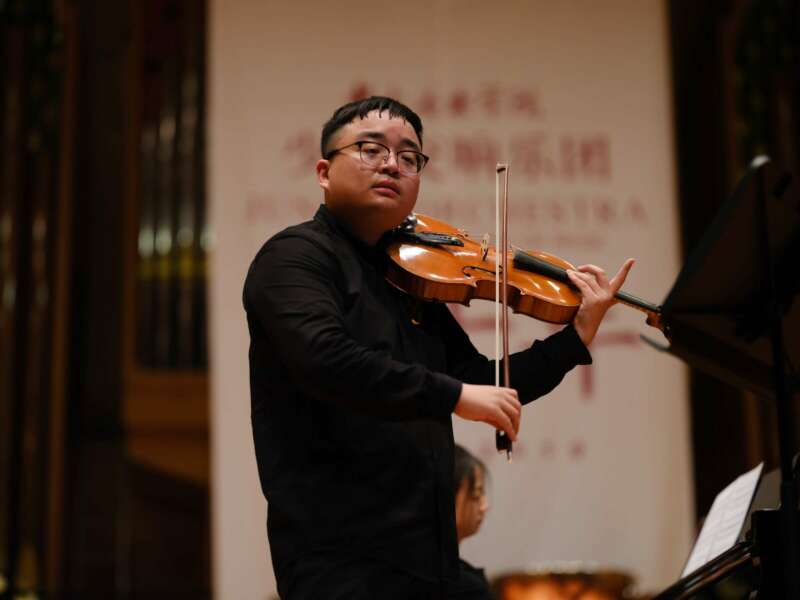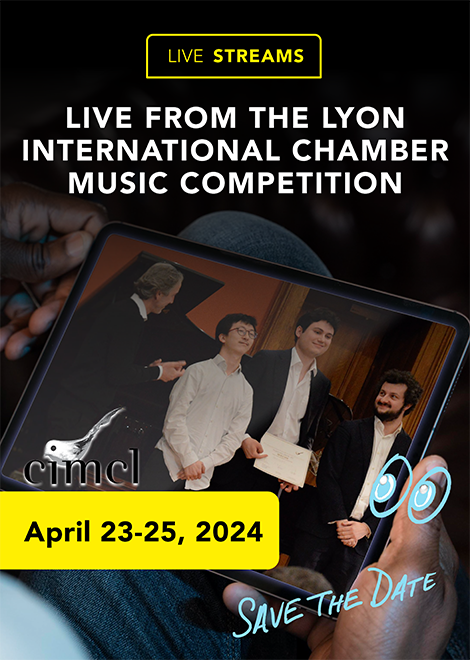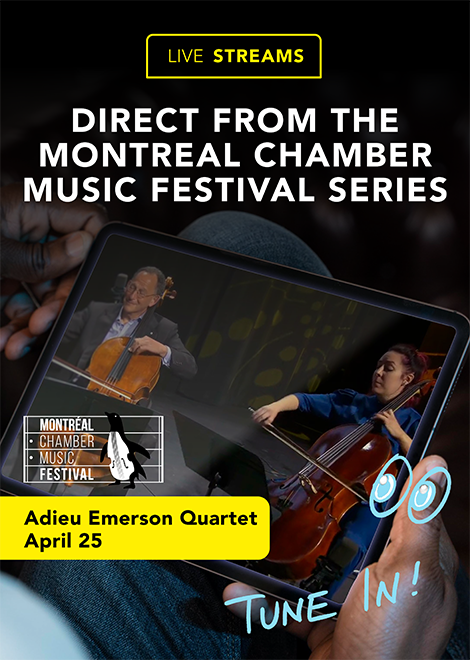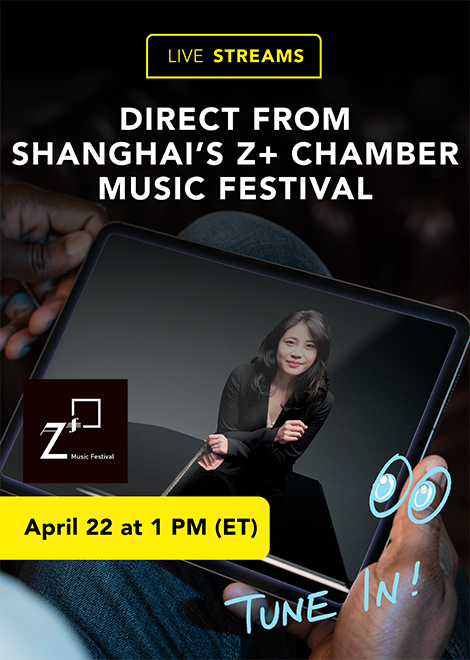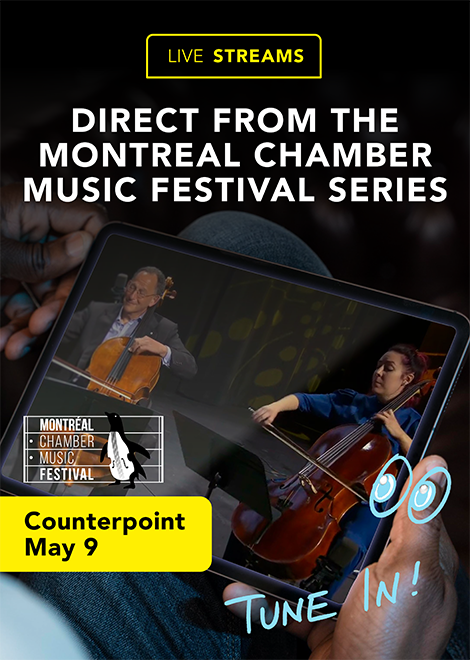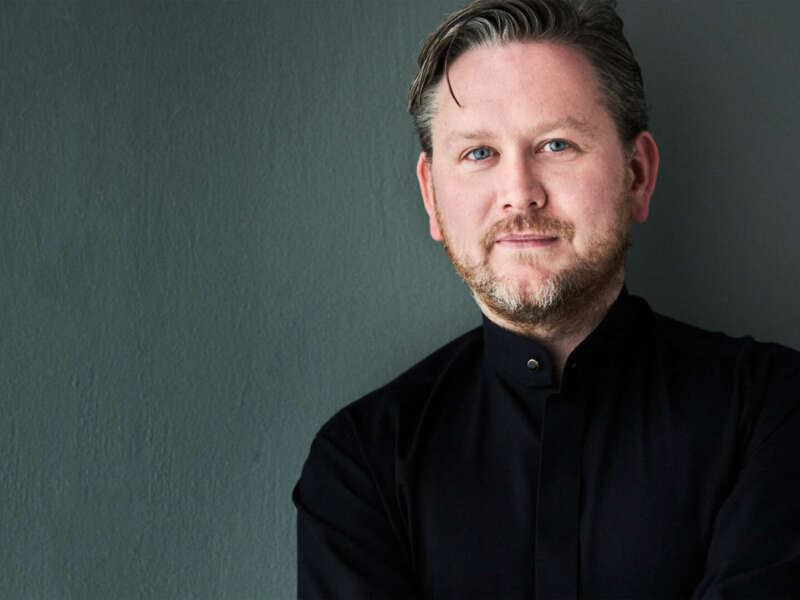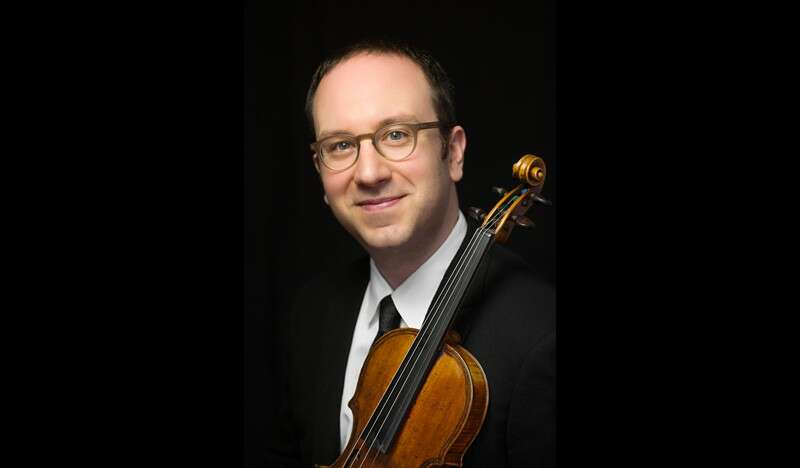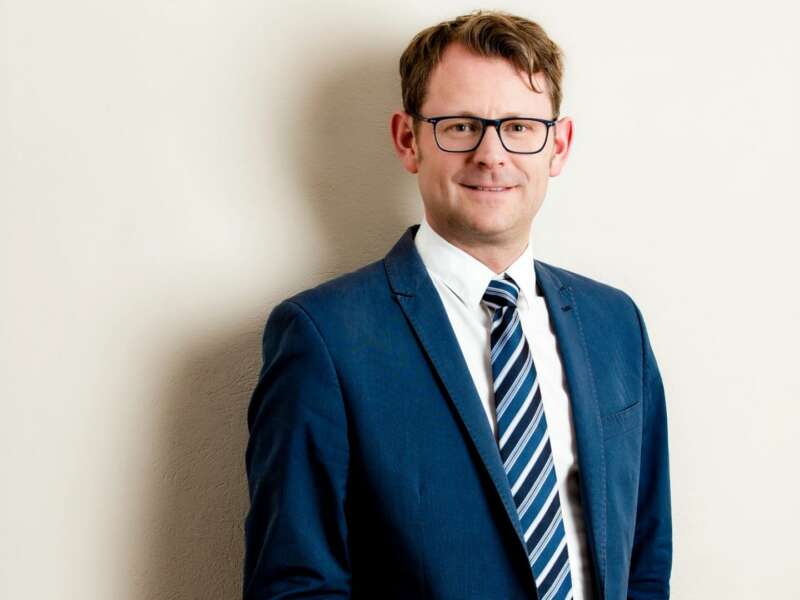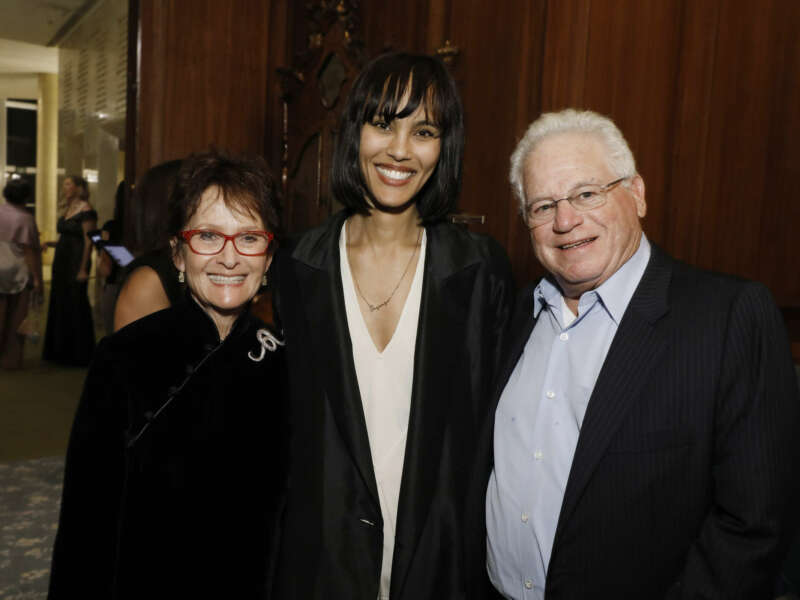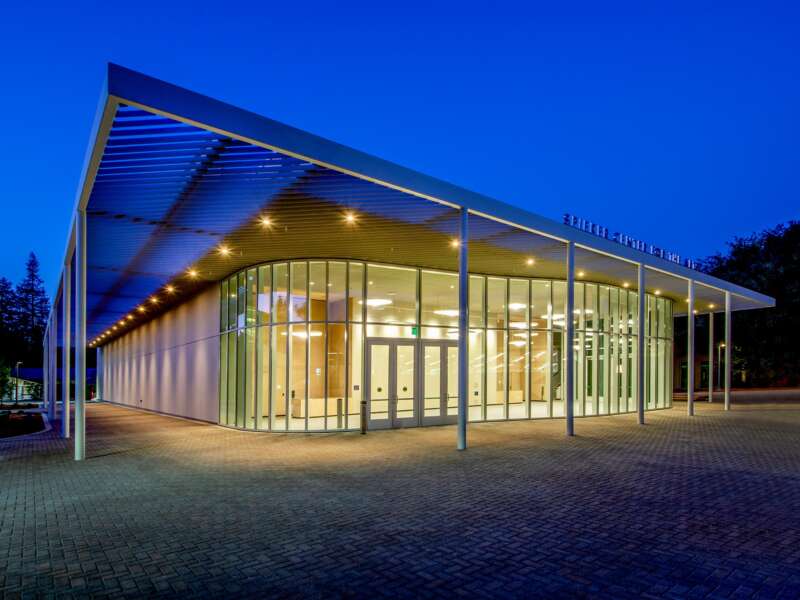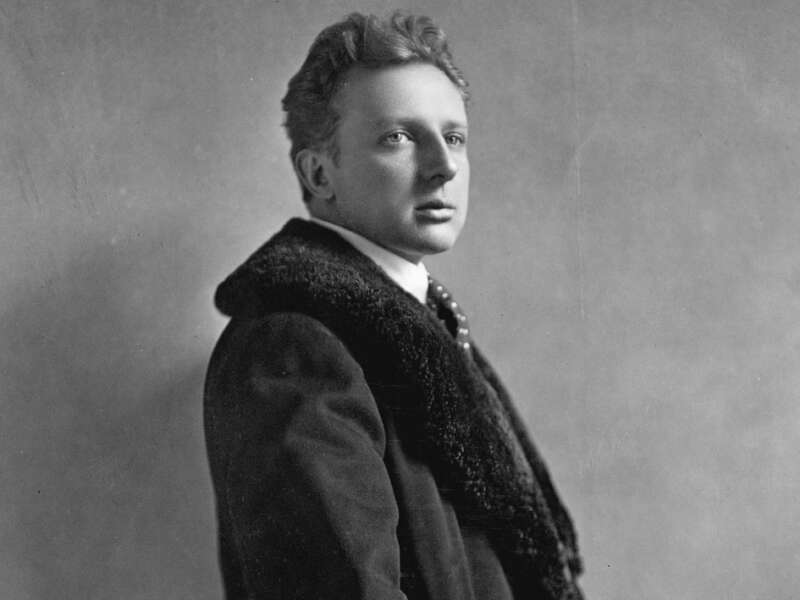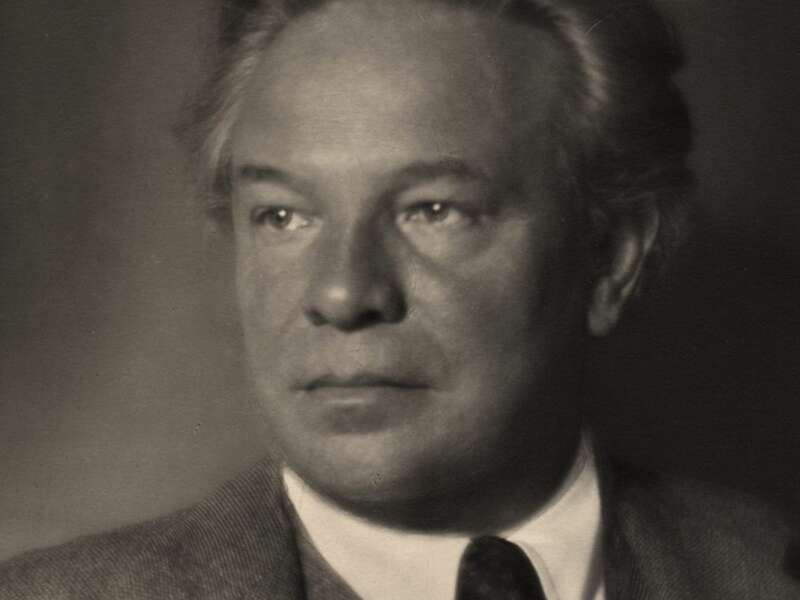VC INTERVIEW | Glenn Gould School's Barry Shiffman on 'Why a Bigger School Doesn't Mean Better'
The school's first orchestra performance in front of a live audience since February 2020 will be streamed on The Violin Channel tomorrow, November 9 at 5 PM ET
The Violin Channel this week sat down with Associate Dean & Director of Chamber Music at the Glenn Gould School of Music, Mr Barry Shiffman to talk through the benefits of a smaller conservatory over a bigger name, the qualities of truly excellent teaching and the best and most responsible practices for preparing a student for the real world outside of college.
Can you tell us about the Glenn Gould School? When was it founded and what programs do you offer?
The Glenn Gould School (GGS) is one of the finest post-secondary music performance training institutions in North America. Founded in 1997 to address the lack of performance-focused Conservatory-style training in Canada and located at The Royal Conservatory in Toronto, GGS builds on the Conservatory’s 135-year-old tradition of musical excellence and provides gifted students of classical music from all around the globe with the skills and attributes necessary for professional success.
GGS is one of the few music schools in North America that is integrated with a major performing arts center — the acoustically superb Koerner Hall — which gives students an edge when it comes to preparing for a professional career. The curriculum is offered for three disciplines — Piano, Voice, and Orchestral Instruments — and at three levels of study: Bachelor of Music, Performance (Honours), Artist Diploma Program (for post-Bachelor studies) and The Rebanks Family Fellowship and International Performance Residency (for post-graduate studies).
With it being a relatively small school, how do you feel this benefits the quality of education you are able to provide?
With a student body purposefully capped at approximately 130 students, we are able to focus our resources on the needs of each student and deliver an experience that is markedly different from larger schools.
Access to practice room space is one obvious advantage. Our incredible facilities have beautiful, well-maintained pianos, and are available close to 24 hours a day for our students. Our goal is to serve the needs of our young artists to best allow their creativity to blossom.
One of the most important benefits of remaining small is that our extraordinary scholarship program provides support that really makes a difference. All of our students receive very generous aid, with half the students benefitting from full-tuition scholarships. We are determined to grow this support as we move forward.
Can you tell us more about your faculty and the large number of masterclasses with guest artists you offer your students each year?
The faculty are so committed to the school. We have faculty such as violinist Paul Kantor, cellists Andrés Díaz and Hans Jørgen Jensen, and pianists John O’Conor and John Perry that are with us every two weeks for focused visits, and we have other faculty that are permanently based in Toronto, including several members of the Toronto Symphony and Canadian Opera Company. Students receive a whopping 39 hours of private lessons per year, which is 50% more than the industry standard.
For you, what are the main qualities of an excellent music teacher?
First and foremost is the ability to LISTEN. Our faculty truly hear each student and do not attempt to fit anyone into a mold. During private lessons, teachers coach through technical and musical aspects, and perhaps most importantly, they have the ability to constantly refill the reservoir of inspiration that a student needs replenished. A path in music performance is a difficult one and our teachers embrace the journey of each student with passion, empathy, and high standards of excellence.
Can you tell us about the world-class facilities available at the school? How important do you feel it is for a young musician in training to have access to top-class acoustics when practicing, recording, and performing?
The Glenn Gould School is one of the few music schools in North America that is integrated with a major performing arts center and we have access to multiple award-winning performance spaces, including the stunning Koerner Hall. The experience of performing in a big space with beautiful sound is important. Understanding how to manipulate time in large spaces … to allow an idea to waft out over an audience and return to the performer, this can only be “taught” through the experience of playing in a great space.
Koerner Hall has one of the greatest acoustics in the world. With a concert series curated by the celebrated Mervon Mehta, the finest artists of our time are performing in the Hall throughout the year. Our students have access to concerts and many of these artists join our masterclass roster as part of their visit.
It’s a well-known fact that finding enough rooms to practice in really can be a major challenge in most music schools around the world. How has the Glenn Gould School actively tackled this perennial problem?
This isn’t a problem for us because of our purposefully capped school size and enough practice rooms that are available nearly 24 hours a day.
It seems it really is a priority at the school to prepare your students for the real world and careers as professional musicians. What do you feel are the most important aspects students should work on during their studies to successfully make this critical transition as achievable as possible?
There is much discussion of the “real world.” The truth is that the real world does not begin after school ends. School needs to resemble the real world. As an example, our orchestra does not spend week upon week preparing a program. Students are expected to have their part expertly prepared before we begin rehearsals. Following a couple preparatory rehearsals, we have focused Orchestral Project Weeks, where we shutter the rest of the curriculum and follow a focused intense rehearsal period that mimics that of a professional experience. Each orchestral project is led by a different guest conductor, again to build the skills of adaptability and keep the well of inspiration fresh.
The results have been exceptional with students bringing a sharp focus and energy to their work in the orchestra, and then moving on to their regular schedule of practice unencumbered by weekly rehearsals.
We also curate a large number of concerts both in our building and at various partner presenters across the city. We are a performance school, and we have a responsibility to provide experiences for all our students to perform frequently.
With Toronto being an international city rich in cultural life, how do you feel this can also contribute to the professional development of a young musician?
Toronto is the fourth largest city in North America and one of the safest and most ethnically diverse in the world. Students can walk a few hundred feet from our door and hear the great early music orchestra Tafelmusik. Go a little further south and enjoy the Canadian Opera Company, or the baroque company Opera Atelier.
If you like new music … how about Array Music, Soundstreams, and The Canadian Music Centre.
If you would like something other than “classical music,” Drake just opened his new concert venue HISTORY not far from the school.
If you like film, you have to go to TIFF, the largest film festival in North America.
And let’s not forget about the importance of FOOD! Our amazing city has restaurants from so many cultures. I always encourage my students to explore the city. Inspiration comes from many places.
What is some of the main feedback you often hear from your alumni about their time at the school?
Our alumni love the personal approach to both academic programming and the positive way that the administration interacts with students. Response time to student questions is very short and the fact that students can comfortably approach anyone on the team, including Dean James Anagnoson, is often mentioned. Because of our purposefully small number of students, they aren’t just a “face in the crowd.”
Our alumni also comment on how appreciative they are for the number of performance opportunities available. All students hit the ground running in September and perform alongside each other in the Royal Conservatory Orchestra — regardless of whether they are a first-year BMus student or a second-year ADP student. There are also non-academic opportunities for students to perform each year whether as part of community outreach events or as part of internal special events.
What type of students would be most suited to joining your 2022-23 programs?
As a performance-based school, students who are most interested in a career as a professional classical musician would benefit most from our programs. We offer 50% more one-on-one studio time with internationally known faculty, and exciting performance opportunities in exceptional facilities including our 1200-seat acoustic gem, Koerner Hall, along with an approach that more closely resembles professional work in the “real world.”
How can people go about applying?
We are now accepting applications for Fall 2022. To learn even more about the school, visit rcmusic.com/ggs/prospectus or contact Aubrey Kelly (she/her), our Admissions and Student Services Manager, directly at 416.408.2824 x204 or [email protected]
We’ll be streaming a performance from the school on The Violin Channel on November 9 at 5 PM Eastern. Tell us about this project and the program?
The Royal Conservatory Orchestra consists of instrumental students in the undergraduate and graduate programs at GGS and is widely regarded as one of the best training orchestras in North America. As mentioned previously, we have different guest conductors to build skills of adaptability and to keep inspiration fresh. For this concert, Maestro Andrei Feher returns (a favourite with the students) and it will be the Orchestra’s first performance in front of an audience since February 2020. And we know that everyone (students, faculty and even our audience) is excited about the return.
The program will feature:
Aaron Copland: Overture from Fanfare for the Common Man
Joan Towers: Overture from Fanfare for the Uncommon Woman
Ludwig van Beethoven: Symphony No. 3 in E flat Major, op. 55
april 2024
may 2024




